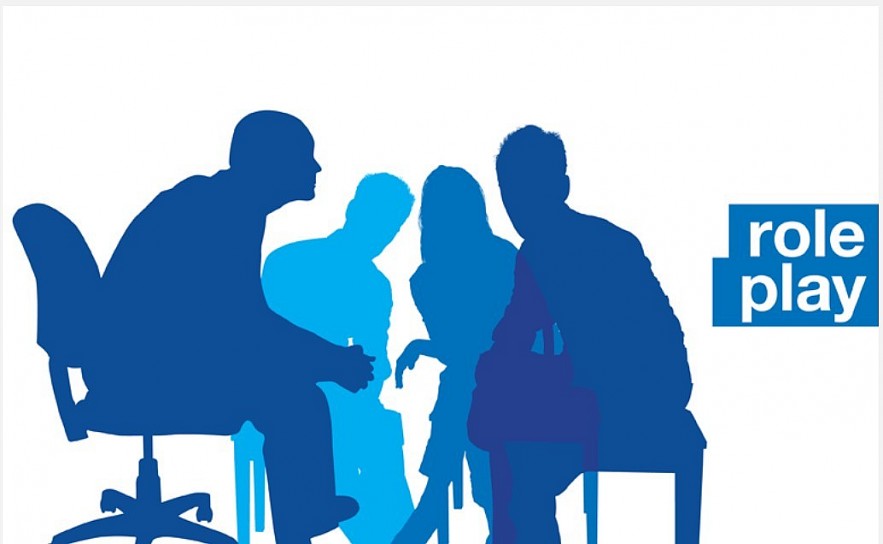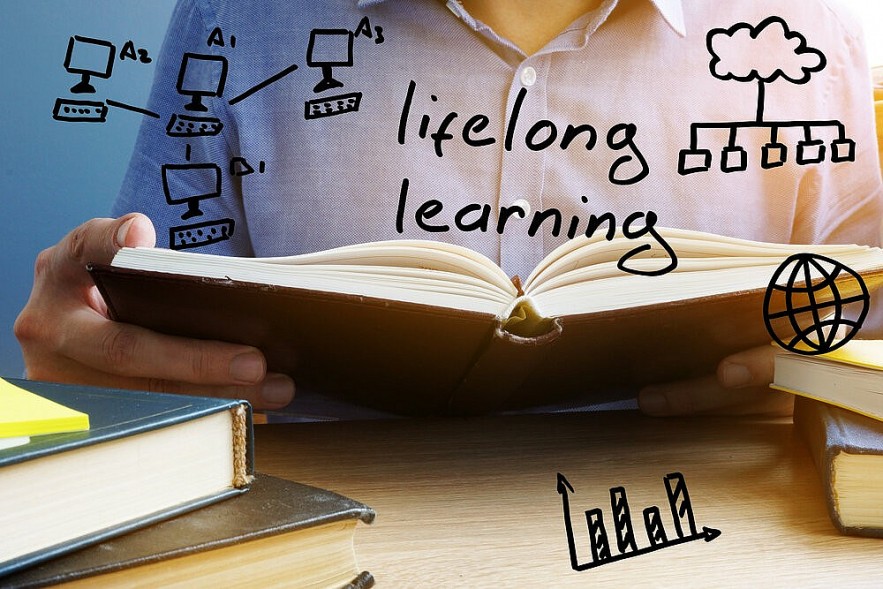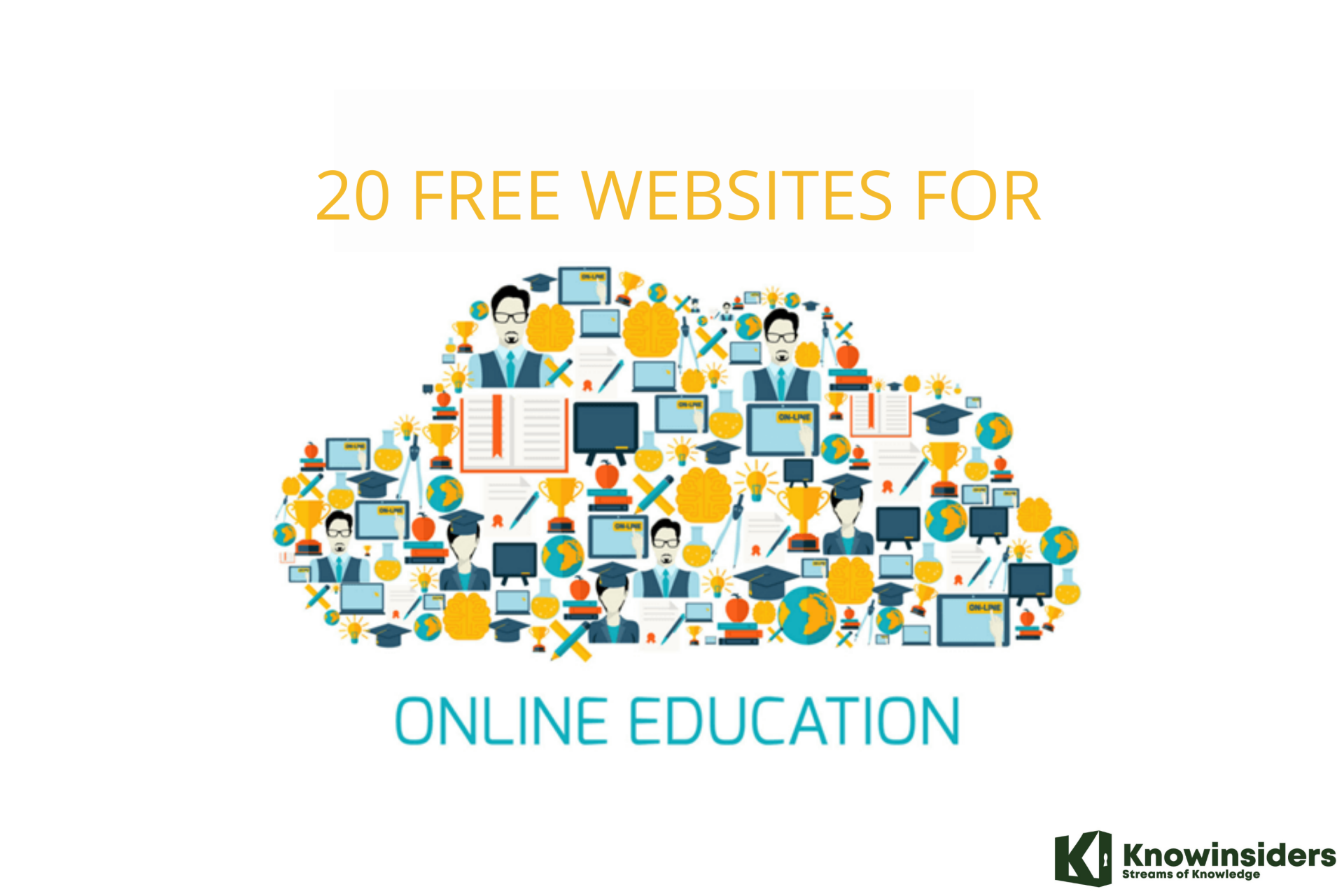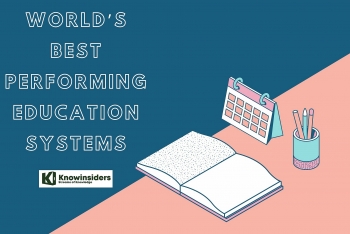Top 9 Education Trends That Will Explode in 2023
♦ Top 10 Best Countries for Higher Education in the World
♦ 10 Best Performing Education Systems In The World and Why
 |
| Top Education Trends That Will Explode in 2023 |
| Contents |
As a student, keeping up to date with the latest educational trends in the world is very important in shaping your future career path.
The Covid-19 pandemic has changed many aspects of our lives, including the way we study and teach. Recently, there are a number of new educational trends that can make learning easier and more seamless for students even though the pandemic has turned their lives upside down.
It is forecast that the outstanding education trends in 2022 will continue to explode in 2023 and new trends will also appear. Catching and updating new trends will help students, students and teachers advance faster in their careers.
Together with education experts, grasp the trends that are predicted to explode in 2023 to help teachers, students and students create a more effective learning environment.
1.Technology in Teaching - Virtual Learning
Over the past two decades, the explosion of technology has not left the education sector behind. In contrast, computers and the Internet have changed the way students access information and participate in the classroom. In the fall of 2017, an estimated 6.5 million students were enrolled in distance higher education programs.
From 2022, you can learn everything from a website or an app. The typical classroom of the 21st century is most likely 100% digital. The online learning platform industry is predicted to be a hundred billion USD industry with more and more people realizing its benefits.
Education and learning made easy and available to anyone living anywhere in the world with online learning platforms like Coursera, Skillshare, Google Academy, MasterClass, Facebook Blueprints and Udemy.
The best thing about these platforms is that you have access to a wealth of amazing learning opportunities from industry experts and educators from top universities around the world. Not to mention, you can access and learn for free.
Instead of signing up for a four-year course, you can now study a variety of subjects and complete the program with a certificate within a few months. Such online learning will help learners save more money.
Go to any of the available online learning platforms and choose the courses you love. Get started today and enjoy a variety of exciting and varied programs.
The development of technology means that there are now a variety of media and learning aids to help students access high-quality education through the Internet. Especially, after 2 years of the Covid-19 epidemic, online classes (virtual learning) have become an inseparable part of schools, motivating students and teachers to apply technology more.
Currently, online learning platforms allow teachers to record and store lectures on the Internet. From there, students can review the lesson learned anytime, anywhere.
The essence of online education is at the same time suggesting to students different learning styles, depending on conditions, abilities and interests. For example, the average, fairly capable student may regularly review archived lectures. While students with good academic ability can actively cultivate advanced exercises but do not interrupt the study time of the whole class.
Meanwhile, teachers have "extended arms" that are learning management systems. Teachers can conveniently monitor and manage students' learning progress throughout the course thanks to additional systems and tools. As a result, teachers will promptly foster and equip students with knowledge gaps.
However, this trend has both benefits and limitations for teachers and educational institutions in teaching and learning. For example, technology helps students learn anytime, anywhere, but it cannot help them hone soft skills such as communication, teamwork or leadership. While, with the traditional, focused learning model, students practice these skills regularly and continuously.
2.Immersive Learning
 |
| Role-Playing Learning - Top Educational Trend |
Immersive learning is a learning method in which students are immersed in a virtual dialogue. Learners put themselves in an environment that helps them naturally absorb knowledge.
Virtual reality (VR) and augmented reality (AR) are two emerging education trends in 2023.
Immersive technologies like VR and AR are not new to us. In fact, most of us use them when playing games and even watching videos.
Bringing this technology into education is a huge step forward in the industry and it is gaining popularity among students as well as teachers.
The reason this method is being used more often in the education industry is because there are more benefits to immersive teaching than learning in an actual classroom.
When using immersive technology in education, students perform better and are more interactive in their learning.
One of the main advantages of using AR and VR technology is that learners are less distracted because they will be immersed in the world of the classroom and everything they see is part of the learning process.
This learner-centered model allows learners to be more interactive and focused, learning at your own pace through techniques that work for you.
Check: The Biggest Technology Trends 2023: Rise of Al, Machine Learning and Robot
3.Soft Skills
According to research by the Future of Jobs Education Foundation, today's jobs require a number of important skills such as critical thinking, problem-solving skills, people management, and creativity. When recruiting employees, employers often look for candidates with the ability to make decisions in difficult situations and leadership qualities.
Therefore, in the process of preparing students and students for their future careers, it is necessary for schools to develop programs to help students nurture and develop soft skills. Soft skills education may become an advantage for secondary and higher education institutions.
For example, besides competing on quality, universities can win high rankings if they help students develop many soft skills needed for jobs. Since then, students have more job opportunities. Output rates and quality of educational institutions are also improved to attract the attention of the next generation of students.
Online learning during the Covid-19 epidemic has become a challenge for teachers and schools in equipping students with soft skills. Going into 2023, when distance learning has become a necessity, educators will have to find a way to balance the use of digital devices in the classroom with encouraging students to work in groups to foster a healthy lifestyle. Nurturing and developing soft skills.
The concept of soft skills now also refers to the ability to use technology devices and the Internet. Therefore, cultivating students' digital proficiency is also a requirement in 2022.
In Singapore, the Ministry of Education has officially implemented the online model of combined face-to-face learning from next year. High school students will study online at home 1.2 days per month. Through the above model, students hone their soft skills by working in groups with their classmates; at the same time, to strengthen technology skills, essential needs in today's era.
4.Lifelong Learning
Every industrial revolution changes the nature of work and profession in amazing ways. The industrial revolution 4.0 has now impacted 50% of jobs worldwide due to dramatic technological advancements leading to changes in the working process.
Many jobs today do not need people, can be completely replaced by robots.
Therefore, if you want to remain competitive in the future employment environment, each individual needs to continuously train and retrain knowledge and skills. The early years of education are not enough for individuals to survive in today's labor market. Instead, after receiving a degree, each person still needs to study continuously.
The above fact requires educational institutions to build a continuous growth mindset in students, students as well as teachers and school staff. The school promotes the teaching of self-study skills so that students can learn on their own even after leaving school.
 |
| Lifelong Learning - Top Educaiton Trend in 2023 |
5.Study Every Time and Everywhere
Learning through unconventional methods is another trend that has emerged over the past year. Gone are the days when many people thought that they could only take knowledge from textbooks and go to class to listen to hours-long lectures.
Learning can be as simple as chatting with a new colleague or choosing a new route to work. There are always lessons that you can learn from every situation in life and from there, you can apply to your work and life in the most unexpected way.
So don't limit yourself to the old school rules. Look for new experiences. Life can teach you things that the classroom can never teach.
6.Learn from Leaders and Entrepreneurs
Leadership is a quality many people have at their disposal but in most other cases it is a skill that can be nurtured through experience and the ability to put oneself in the shoes of others.
Learning through a leader or an inspirational person is very interesting when they are people with a lot of real-world experience. Nothing is more educational than applying theory to real life.
An entrepreneur is usually someone who is willing to take risks. If you believe you have potential, it is interesting to learn from someone who has walked a similar path because someone who has actually gone through many trials and tribulations will give you valuable lessons.
Leadership and entrepreneurship training has become an educational trend in 2022 and promises to explode from 2023 as more and more people realize that learning through experienced people gives them something to learn. insight into every issue, every aspect of work and life.
Theoretical knowledge is important in developing your career. However, what you learn through those who have experienced it will help you make better decisions.
7.Microlearning
Sitting in class listening to a lecture lasting many hours sounds quite exhausting. Many students and students always feel bored with lengthy lectures. This is because our brain has only a limited amount of information it can "consume" in a fixed amount of time.
The Microlearning concept is quite effective because it breaks the lesson into small parts. Small parts of a lesson are more likely to be remembered by students. Therefore, Microlearning becomes one of the most effective education trends in 2022.
In most online teaching platforms, lessons are divided into easy-to-understand sections that help learners still feel relaxed while learning.
The split learning method also repeats lessons so that students remember them better. Information is "recreated" in more imaginative ways to capture students' attention.
Through the split learning approach, we can quickly understand new theories and concepts and acquire skills that will be useful for future careers and lives.
8.Revolution of Lectures
As technology develops and penetrates into the field of education, the ability of students to concentrate and pay attention also changes. A study conducted by Microsoft Corporation in the period 2000 - 2015 showed that people's attention span decreased by 4 seconds. This decrease is largely due to the influence of technology because it stimulates the human brain to work continuously, to absorb information continuously but reduce the ability to concentrate.
The degree of concentration is now also seen as a method of distinguishing between generations. For example, the Millennial generation (also known as Generation Z, only those born between 1995 and 2012) who grew up in an age of technology have a lower ability to focus than previous generations such as 9X, 8X… But Unique content makes Generation Z more focused than other generations. Conversely, boring content will not be able to enter their mind.
This model has also had a huge impact on education. Interesting lectures can keep students focused, but boring lectures make students distracted. However, the concept of interesting lectures today also has many differences, bringing more technological elements than before such as the need to integrate images, videos, multimedia materials ...
Teachers must adjust the lesson to have more interesting, lively, and attractive content to attract students' attention. When designing lesson plans and lectures, teachers need to constantly update images, videos or other multimedia materials. The more intuitive the material, the more attention it will attract students.
However, lectures should not rely too much on available materials, reducing the ability to interact and connect between students and teachers. No matter how modern technology is, teachers still need to actively interact with students, and at the same time encourage them to work in groups and individually to develop the classroom.
9.Transforming the Role of the Teacher
As technology evolves, it also changes the way teachers connect with students and the classroom. With today's access to abundant and rich information, students have simple and quick tools to learn new knowledge instead of waiting for teachers to provide them. This helps students' learning opportunities become more independent and subjective.
In this condition, the student is no longer dependent on the teacher as before. Instead, teachers will organize many self-study and self-experience activities with the role of supporting students in the process of accessing knowledge. The task of teachers today is to help students understand how to learn, arouse a love of learning as well as how to explore and absorb available information.
For example, at present, students can actively look up knowledge on the Internet, but not all sources of information are accurate. Therefore, teachers should guide students on how to find accurate and quality information such as searching on reputable websites, comparing information from many search sources or forming critical thinking before information.
After students present their results, the teacher is the one to summarize, extract valuable information, succinctly, and guide them to remember the knowledge instead of memorizing it. Because, when faced with easy information search, students tend to be subjective, lazy to study and memorize.
As such, teaching will also pose many challenges for teachers. For example, teachers must have technology skills to understand how to find and distinguish information on the Internet. Teachers must learn to build classroom discussions and create an environment that fosters teamwork.
Successful teachers are those who can help students take control of their own learning. In the new position, teachers who want to promote student development will find this model more rewarding and valuable than the passive method of providing knowledge.
Thoughts and SkillsIn the context of globalization and the technology boom of the 21st century, many professions are eliminated and many new ones will emerge. In order to train appropriate human resources and actively adapt to the changes of the future world, education needs to have more obvious and effective changes. In particular, focusing on training thinking and skills is considered the core key. In the US, educational methods are constantly updated and renewed, especially focusing on skills and practical application. In Finland, the national core basic education program in 2016 emphasized the foundation of lifelong learning for students. The program also focuses on training skills and self-improvement. The famous pedagogue Maria Montessori once shared: “Do not educate children in today's world. The world of today will change as you grow up. Priority must be given to helping them know how to develop creative thinking and practice self-adaptation.” In the next decade, millions of workers will have to change careers because of the impact of technology 4.0, especially the 3A model (AI: Artificial Intelligence, Automation: Automation and Analytics: Analytics). Therefore, equipping with 21st century skills is extremely important. According to a Brookings Institution study on the prevalence of 21st century skills, a wide range of countries affirm communication and creativity skills as the most important, followed by problem-solving and thinking skills. counter-argument. It can be said that 21st century skills are the "key" for countries to create a workforce that is ready for a future of change. In the 4.0 era, workers have to learn for life and 21st century skills are the foundation to "upgrade" themselves to the best version every day! |
Conclusion
Education trends in 2023 have many breakthrough changes and therefore, learning and teaching also become more interesting than before.
By 2022, students and teachers alike have moved away from traditional teaching models, and by 2023 we are moving into an era of inclusive education where everyone has the opportunity to learn in a way that works for them.
 Top 20 Free Online Education Sites For The Best Top 20 Free Online Education Sites For The Best Online classes are the perfect way for most to continue their education. Here are the top 20 of the best online learning sites that offer ... |
 10 Best Performing Education Systems In The World and Why 10 Best Performing Education Systems In The World and Why The pursuit of the greatest education has always been a top priority for human civilization. Which country has the best performance in education in the ... |
 Education in the Age of Uncertainty: How Will Behave and Prepare Education in the Age of Uncertainty: How Will Behave and Prepare Due to the raging COVID pandemic, perhaps the visualization of uncertainty has become clearer. |
 Online Educational Platforms That Could Replace College in the Future Online Educational Platforms That Could Replace College in the Future Within the last few years, more students have been registering for online courses. |























